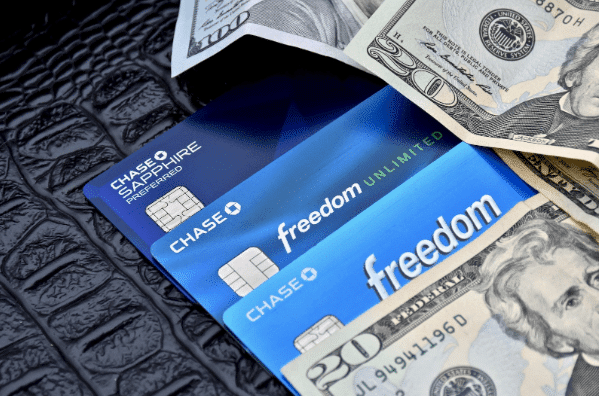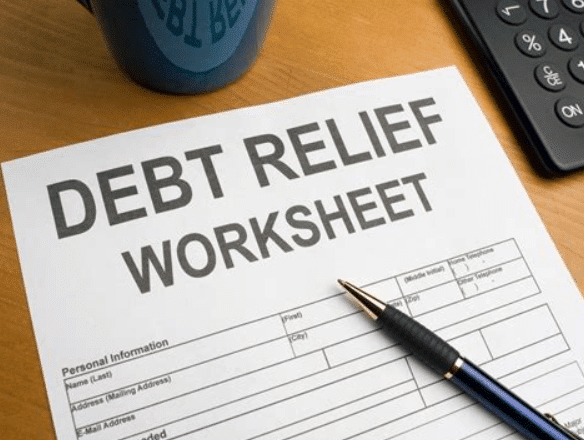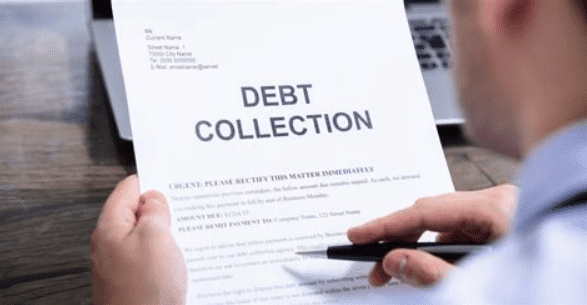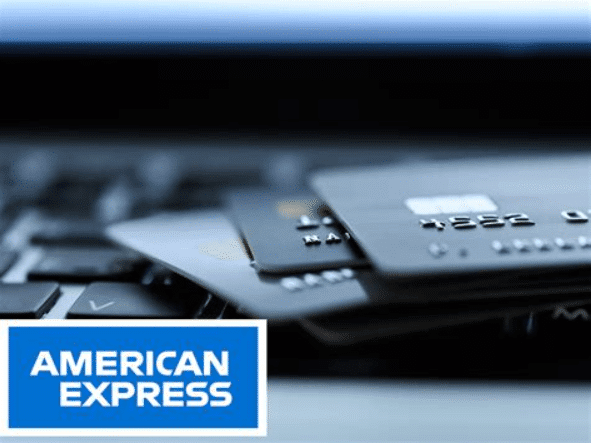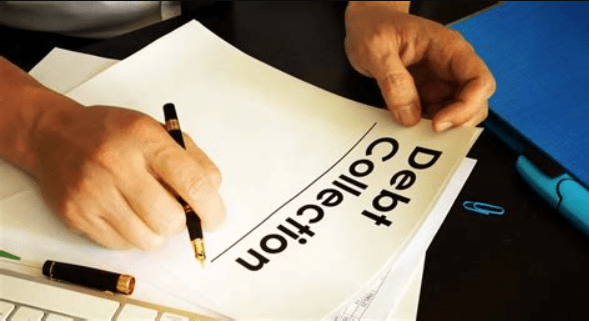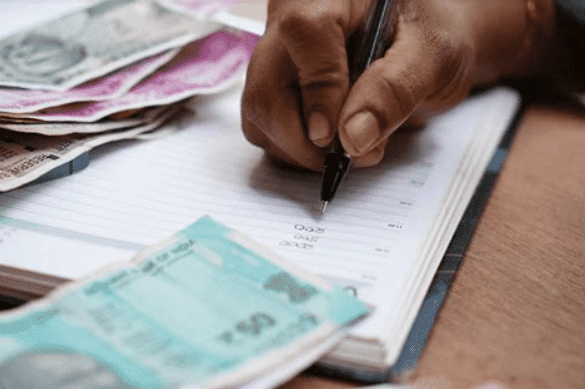When faced with a debt collection lawsuit from Credit One Bank, taking proactive steps is crucial. Begin by responding to the lawsuit with an Answer, and utilize ZumaZip.com to efficiently draft and file your response.
Receiving a Summons to appear in court can evoke uncertainty, necessitating prompt action. The choices made during this phase hold considerable sway over the lawsuit’s outcome. Recognizing the seriousness of the situation, it is crucial to respond decisively.
Begin by acquainting yourself with Credit One Bank and its operational procedures. Understanding your rights can serve as a formidable shield against debt collection lawsuits. In the subsequent discussion, we will explore prevalent debt collection methodologies utilized by entities such as Credit One, along with effective approaches to navigate through such legal proceedings.
Let us now embark on an in-depth exploration of this pivotal subject matter.
Who is Credit One Bank?
Credit One Bank is one of the leading financial services companies in the credit card industry. Credit One Bank is renowned for its specialization in catering to consumers with less-than-optimal credit scores, offering tailored credit card solutions for this demographic. However, this specialization often entails higher interest rates and annual fees. Given that Credit One extends credit to individuals across a spectrum of creditworthiness, they mitigate their risk by imposing elevated interest rates and fees compared to other credit card providers.
Consumers opting for a Credit One Bank credit card may encounter higher financial obligations from the outset due to these heightened fees and interest rates. While Credit One’s offerings present a valuable opportunity for individuals seeking to rebuild or establish credit, it’s imperative for consumers to meticulously evaluate the associated costs and weigh them against the benefits of obtaining credit with the bank.
Credit One Financial, headquartered in Las Vegas, Nevada, has upheld a commendable reputation since its inception in 1998. As a credit card issuer, Credit One Bank operates distinctively from third-party collection agencies or debt buyers, focusing primarily on issuing credit cards to approved consumers.
Given their willingness to consider individuals with credit scores as low as 370, Credit One Bank may encounter a higher-than-average incidence of uncollected accounts. When customers default on their credit card balances, Credit One’s collection department initiates efforts to recover the outstanding debts. Should these endeavors prove ineffective, Credit One Bank must then evaluate whether further legal recourse, including the potential pursuit of a lawsuit, is warranted to address the defaulted balances.
If you need to reach Credit One about a debt you owe, you can use the following contact information:
Credit One Bank
P.O. Box 98873
Las Vegas, NV 89193-8873
1-877-825-3242
Credit One Bank has bad reviews and gets lots of complaints
The collection practices of Credit One Bank’s collection department have faced criticism, with reports of harassing phone calls and communications directed at past-due consumers. According to data sourced from the Better Business Bureau (BBB), there have been over 1,400 complaints lodged against Credit One Bank within the last three years, with a significant portion attributed to actions taken by the bank’s collections department. Similarly, Consumer Affairs has reported a rating of only 1.2 out of five stars for Credit One Bank, based on nearly 150 reviews.
Given the transparency maintained by organizations such as the BBB and Consumer Affairs regarding consumer complaints, these platforms can serve as valuable resources for gathering information about Credit One Bank and any potential lawsuits filed against you.
As an illustration, let’s examine a real complaint excerpt from Credit One’s BBB profile (edited for clarity):
“I received this card about a year ago to help rebuild my credit. In the beginning, everything was fine. I made payments on time, and there was no issue. About 4 to 5 months ago I started to have financial issues. The company reported this after 1 month of a missed payment and my credit score went down over 50 points. They have harassed me repeatedly and called 8 to 9 times a day. As of today, my balance is $490. and some change. I had a 300.00 credit limit. I was told today 8/15/2022 that the account was CLOSED. I was also informed by a representative that I still owe money every month. How is this possible if the account is CLOSED?”
The numerous complaints against Credit One Bank underscore its notorious reputation for imposing additional fees, sometimes lacking clear explanation and occurring on multiple occasions. Paired with high-interest rates, these fees present substantial hurdles for consumers such as yourself. Nevertheless, it’s crucial to acknowledge that you possess rights in these circumstances, providing you with protection.
Through a comprehensive understanding of your rights and pursuing suitable recourse, you can adeptly navigate these challenges. Whether through dispute resolution mechanisms, legal channels, or alternative avenues, proactively asserting your rights can safeguard your financial interests and address any unjust practices perpetrated by Credit One Bank.
You have rights that can help you fight a Credit One Bank debt
Since Credit One is not a debt collection agency, it is not governed by the obligations listed under the Fair Debt Collection Practices Act (FDCPA). However, if the debt account is transferred or sold to a third-party debt collection agency, the following rules apply:
- Debt collectors cannot call you before 8 a.m. or after 9 p.m.
- Debt collectors cannot threaten to arrest you.
- Debt collectors cannot use vulgar or intimidating language to get you to pay off a debt.
- Debt collectors cannot threaten to harm you or members of your family physically or financially.
- Debt collectors cannot call you at your workplace.
- Debt collectors cannot discuss your debt with your family members or friends.
- Debt collectors cannot threaten to take legal action that they cannot, or do not plan to, take.
If a debt collector is contacting you regarding an old debt with Credit One, it’s essential to maintain thorough records of all communications with the collector. If they employ any of the methods outlined earlier, you may be eligible for compensation of up to $1,000 per violation of the Fair Debt Collection Practices Act (FDCPA). Numerous consumers have initiated Credit One Bank lawsuits to assert their rights in court. Let’s delve into some class action lawsuits against Credit One.
Credit One Bank class action lawsuit
Credit One has gained notoriety for disregarding consumer complaints and requests to validate debt amounts and information. Over the past decade, Credit One has been embroiled in numerous class action lawsuits. Here are some examples of Credit One Bank class action lawsuits:
- Credit One uses outdated contact information, mistakenly calling minors in an attempt to collect on a delinquent account.
- Credit one ignores identity theft reports and other credit disputes, causing consumers to have major issues with their credit.
- Credit One sells charged-off debt accounts to collection agencies, even if the account is fraudulent.
- Credit One uses pre-recorded messaging and automatic telephone dialing systems to contact customers via phone, even after formal requests to stop such communications. This is a violation of the Telephone Consumer Protection Act.
- Credit One calls people who do not have a card with them and ignores their requests to stop.
As you can see, some of Credit One Bank’s attempts to collect debt are sketchy and unfair. Let’s consider a real example.
Example: In class action lawsuit, Caccamise v. Credit One Bank, N.A. et al, Jordan Caccamise’s identity was stolen when a Credit One card was opened in her name. Jordan’s credit score dropped as a result, so she filed several disputes of fraudulent accounts and credit inquiries with Credit One Bank. However, Credit ignored the disputes and continued to pursue Jordan for the fraudulent debts incurred and to report the information to the credit bureaus. Eventually, Credit One sold the charged-off debt account to a debt collection agency, further damaging Jordan’s credit.
Certainly, Credit One’s track record in handling consumer debt accounts leaves much to be desired. If you find yourself indebted to Credit One, there is a possibility that they may initiate legal action against you or transfer the debt to a collection agency. However, if you are sued for a Credit One Bank debt, you can take steps to defend yourself and potentially secure a favorable outcome. Here’s how:
Why is Credit One Bank suing me?
If you’re confronting a lawsuit from Credit One Bank, it’s probable that it stems from unpaid credit card debt. Upon defaulting on payments subsequent to acquiring a credit card from Credit One, they may commence contacting you through various means such as calls, emails, and letters concerning the outstanding balance. Should several months elapse without payment, there’s an increased likelihood that Credit One will deem the account uncollectible and opt to sell it to a debt collection agency.
Disregarding a debt collection lawsuit is not advisable. Thankfully, with ZumaZip, you can promptly respond to a Credit One Bank lawsuit within a matter of minutes. By promptly addressing the lawsuit, you can safeguard your rights and potentially alleviate the adverse consequences associated with unresolved debt.
Respond to a Credit One Bank Lawsuit
Facing a lawsuit can indeed be a daunting experience. Upon receiving a court Summons and Complaint in the mail, it’s essential to grasp their significance. The Summons serves as formal notification of the lawsuit, while the Complaint delineates the precise claims being asserted against you.
To enhance your prospects of a favorable outcome in a Credit One Bank lawsuit, the first course of action is to promptly respond to the Summons and Complaint. Depending on your jurisdiction, you typically have a window of up to 35 days to formulate a response. Here are three indispensable steps to draft an Answer to your debt collection lawsuit against Credit One Bank:
- Review the Summons and Complaint: Carefully read through both documents to understand the allegations against you and the timeline for responding.
- Draft Your Answer: Craft a formal response, known as an Answer, addressing each allegation made in the Complaint. Provide clear and concise explanations, along with any defenses you may have.
- File Your Answer: Submit your Answer to the appropriate court within the specified timeframe. Ensure you follow the court’s filing procedures and include any required documentation.
By taking these steps to respond effectively to the Summons and Complaint, you can protect your rights and set the stage for a successful defense in the Credit One Bank lawsuit.
1. Respond to every paragraph in the Complaint
The Complaint includes several numbered paragraphs that lay out the lawsuit against you. For debt collection cases, there are usually between 10 and 30 numbered paragraphs. Read each paragraph and decide how you want to respond. You should respond in one of three ways:
- Admit. Admit the paragraph if you agree with everything in the paragraph.
- Deny. Deny the paragraph if you want to make the debt collector prove that it is true.
- Deny due to lack of knowledge. This is a lawyerly way of saying “I don’t know.” Choose this option if you don’t understand the paragraph or if you don’t have the information needed to respond to it.
Choose one of these responses and write it into your Answer after the corresponding paragraph number.
Many attorneys recommend denying everything to force the other side to prove everything. This is a good strategy in many cases.
2. Assert your affirmative defenses
An “affirmative defense” represents a rationale why Credit One Bank or a debt collector lacks a valid case; it serves as your defense against the lawsuit. It is imperative to enumerate these defenses in your Answer; otherwise, you forfeit the opportunity to raise them subsequently. Indeed, asserting your affirmative defenses is a one-time opportunity: failure to do so now legally precludes you from doing so later. While many online forms may not assist in asserting your affirmative defenses, ZumaZip does.
Here are some of the more prevalent defenses we encounter:
- The account with the debt is not your account.
- The contract was already canceled. Therefore you don’t owe the creditor anything.
- The statute of limitations has expired. A statute of limitations is a law that sets a deadline on an action.
- The debt has been paid or excused.
- The debt has been partially paid.
- You were a co-signer but were not informed of your rights as a co-signer.
When formulating a defense against a debt collection lawsuit, it’s crucial to recognize that simply being unable to pay the debt typically does not constitute a valid legal defense. While financial hardship may present significant challenges, it’s generally not recognized as a legal justification for failing to fulfill financial obligations.
Instead, when crafting your defense, concentrate on affirmative defenses that directly contest the claims asserted against you in the lawsuit. These defenses may encompass disputing the accuracy of the debt, asserting violations of consumer protection laws, or challenging the creditor’s entitlement to collect the debt based on the statute of limitations, among other strategies.
By comprehending and leveraging appropriate affirmative defenses, you can articulate a robust legal response to the debt collection lawsuit and potentially secure a favorable outcome in your case.
3. File the Answer with the court and the plaintiff
Once you have drafted your Answer, addressed the paragraphs in the Complaint, and asserted your affirmative defenses, the final crucial step is to file your Answer. The Answer document, on its own, holds no legal weight unless it is filed correctly. Failing to file it is akin to completing homework but neglecting to turn it in. ZumaZip streamlines this process for you, alleviating the need to purchase a printer and decipher whether Certified Mail or Priority Mail is necessary at the Post Office.
Here’s what you need to do to file your answer:
- Print two copies of your Answer.
- Mail one copy to the court.
- Mail the other copy to the plaintiff’s attorney.
The address for the attorney handling the case will typically be provided in the Summons and Complaint you received in the mail. However, determining the address for the Court can be more complex. Many Summons documents do not include the address of the Court, and even if they do, the mailing address may differ from the physical address of the court listed on Google.
Fortunately, with ZumaZip, we handle all of these details for you. We ensure that your Answer is directed to the appropriate location, alleviating any confusion or uncertainty about where to send your response.
Affirmative defenses will help you fight Credit One Bank
Responding to a lawsuit from Credit One Bank presents an opportunity to assert affirmative defenses, which articulate reasons why Credit One should not prevail in the lawsuit. This is your chance to present your perspective and illustrate why the lawsuit lacks merit.
Credit One Bank has initiated the lawsuit and leveled allegations against you. As the plaintiff, the burden of proof lies with them to substantiate their claims. They must prove that you incurred the debt, that you are liable for it, and that the amounts stated in the lawsuit are accurate.
Therefore, it is crucial to demand that Credit One Bank furnish irrefutable documentation supporting these assertions. You or your attorney should request evidence demonstrating your responsibility for the debt, Credit One Bank’s legal authority to sue you, and the accuracy of the amount specified in the Complaint.
This request for evidence is critical because credit card issuers sometimes sue the wrong individual or file lawsuits beyond the statute of limitations. By scrutinizing the evidence provided by Credit One Bank, you can uncover any errors, inconsistencies, or deficiencies in their case and fortify your defense against the lawsuit.
Ensure that your affirmative defense is appropriately crafted with ZumaZip.
What is ZumaZip?
ZumaZip is a convenient solution designed to streamline your response to a debt collection lawsuit. Here’s a breakdown of what you can expect when you use ZumaZip:
Firstly, you’ll access our user-friendly web application, which guides you through the process step by step. You’ll be prompted to answer a series of questions related to your specific situation. Once you’ve completed the questionnaire, you have the option to either print out the finalized forms and mail them to the appropriate courts yourself, or you can opt to utilize ZumaZip’s services to file them on your behalf. Additionally, if you choose this option, an attorney will review your document for added peace of mind.
If you’re seeking guidance on how to effectively respond to a debt collection lawsuit, ZumaZip can provide the assistance you need. Feel free to explore our FAQs for more information on what ZumaZip has to offer.
What if I haven’t been sued yet?
If you’ve only received a collections notice, but not a lawsuit, the best way to respond is with a Debt Validation Letter. When a debt collector contacts you in any way, whether it’s by phone or mail, you can respond by formally requesting a debt validation with a Debt Validation Letter . This letter notifies the collector that you dispute the debt and forces them to provide proof you owe the debt. They can’t call you or continue collecting until they provide validation of the debt. This flowchart shows how you can use a Debt Validation Letter to win.
Get started with a Debt Validation Letter here.
How to Answer a Summons for debt collection in all 50 states
Here’s a list of guides on how to respond to a debt collection lawsuit in each state:
- Alabama
- Alaska
- Arizona
- Arkansas
- California
- Colorado
- Connecticut
- Delaware
- Florida
- Georgia
- Hawaii
- Idaho
- Illinois
- Indiana
- Iowa
- Kansas
- Kentucky
- Louisiana
- Maine
- Maryland
- Massachusetts
- Michigan
- Minnesota
- Mississippi
- Missouri
- Montana
- Nebraska
- Nevada
- New Hampshire
- New Jersey
- New Mexico
- New York
- North Carolina
- North Dakota
- Ohio
- Oklahoma
- Oregon
- Pennsylvania
- Rhode Island
- South Carolina
- South Dakota
- Tennessee
- Texas
- Utah
- Vermont; Vermont (Small Claims court)
- Virginia
- Washington
- West Virginia
- Wisconsin
- Wyoming
Guides on how to beat every debt collector
Hey there! Facing off against a debt collector can feel like a daunting challenge, but fear not! We’re here to help you navigate through it all with our handy guides designed to assist you in beating every debt collector you encounter. Whether you’re facing a new lawsuit or dealing with a persistent collector, we’ve got your back. Stay positive, stay informed, and let’s tackle this together!
- Absolute Resolutions Investments LLC
- Accredited Collection Services
- Alliance One
- Amcol Clmbia
- American Recovery Service
- Asset Acceptance LLC
- Asset Recovery Solutions
- Associated Credit Services
- Autovest LLC
- Cach LLC
- Cavalry SPV I LLC
- Cerastes LLC
- Colinfobur
- Covington Credit
- Crown Asset Management
- CTC Debt Collector
- Cypress Financial Recoveries
- Delanor Kemper & Associates
- Eagle Loan of Ohio
- Educap
- Estate Information Services
- FIA Card Services
- Forster & Garbus
- Freshview Solutions
- Fulton Friedman & Gullace LLP
- Harvest Credit Management
- Howard Lee Schiff
- Hudson & Keyse LLC
- Integras Capital Recovery LLC
- Javitch Block
- Jefferson Capital Systems LLC
- LVNV Funding
- Mannbracken
- Mariner Finance
- Medicredit
- Michael J Adams PC
- Michael J Scott
- Midland Funding LLC
- Mullooly, Jeffrey, Rooney & Flynn
- Mountain Land Collections
- MRS Associates
- National Collegiate Trust
- Nationstar Foreclosure
- Northstar Capital Acquisition
- NCEP LLC
- NRC Collection Agency
- OneMain Financial
- Palisades Collection LLC
- Pallida LLC
- Paragon Revenue Group
- Pinnacle Collections Agency
- PMAB LLC
- Portfolio Recovery Associates
- Provest Law
- PYOD LLC
- Reunion Student Loan Finance Corporation
- Revenue Group
- Regents and Associates
- RSIEH
- Salander Enterprises LLC
- Second Round Sub LLC
- Security Credit Services
- Sherman Financial Group
- Suttell and Hammer
- T-Mobile
- Transworld Systems
- Tulsa Teachers Credit Union
- UCB Collection
- Velo Law Office
- Velocity Investments
- Waypoint Resource Group
- Weinberg and Associates
- Wolpoff & Abramson
Settle your medical debt
Having a health challenge is stressful, but dealing medical debt on top of it is overwhelming. Here are some resources on how to manage medical debt.
- Am I Responsible for My Spouse’s Medical Debt?
- Do I Need a Lawyer for Medical Bills?
- Do I Need a Lawyer to Fight Medical Bill Debt?
- Does Bankruptcy Clear Medical Debt?
- How Much Do Collection Agencies Pay for Medical Debt?
- How to Find Medical Debt Forgiveness Programs
- Is There a Statute of Limitations on Medical Bills?
- Medical Debt Statute of Limitations by State
- Summoned to Court for Medical Bills — What Do I Do?
- Summoned to Court for Medical Bills? What to Do Next
Stop calls from Debt Collectors
Do you keep getting calls from an unknown number, only to realize that it’s a debt collector on the other line? If you’ve been called by any of the following numbers, chances are you have collectors coming after you, and we’ll tell you how to stop them.
- 800-390-7584
- 800-289-8004
- 800-955-6600
- 877-366-0169
- 877-591-0747
- 800-278-2420
- 800-604-0064
- 800-846-6406
- 877-317-0948
- 888-899-4332
- 888-912-7925
- 202-367-9070
- 502-267-7522
Other wage garnishment resources
- Bank Account Garnishment and Liens in Texas
- Can I Stop Wage Garnishment?
- Can My Wife’s Bank Account Be Garnished for My Debt?
- Can Payday Loans Garnish Your Wages?
- Can pensions be garnished?
- Can Private Disability Payments Be Garnished?
- Can Social Security Disability Be Garnished?
- Can They Garnish Your Wages for Credit Card Debt?
- Can You Stop a Garnishment Once It Starts?
- Guide to Garnishment Limits by State
- How Can I Stop Wage Garnishments Immediately?
- How Long Before a Creditor Can Garnish Wages?
- How Long Does It Take to Get Garnished Wages Back?
- How to Fight a Wage Garnishment
- How to Prevent Wage Garnishment
- How to Stop a Garnishment
- How to Stop Social Security Wage Garnishment
- How to Stop Wage Garnishment — Everything You Need to Know
- New York Garnishment Laws – Overview
- Ohio Garnishment Laws — What They Say
- Wage Garnishment Lawyer
- What Is Wage Garnishment?
Guides on Arbitration
If the thought of going to court stresses you out, you’re not alone. Many Americans who are sued for credit card debt utilize a Motion to Compel Arbitration to push their case out of court and into arbitration.
Below are some resources on how to use an arbitration clause to your advantage and win a debt lawsuit.
- How Arbitration Works
- How to Find an Arbitration Clause in Your Credit Agreement
- How to Make a Motion to Compel Arbitration
- How to Make a Motion to Compel Arbitration in Florida
- How to Make a Motion to Compel Arbitration Without an Attorney
- How Credit Card Arbitration Works
- Motion to Compel Arbitration in California
- Sample Motion to Compel Arbitration
Federal Debt Collection Laws Can Protect You
Knowing your rights makes it easier to stand up for your rights. Below, we’ve compiled all our articles on federal debt collection laws that protect you from unfair practices.
- 15 USC 1692 Explained
- Does the Fair Credit Reporting Act Work in Florida?
- FDCPA Violations List
- How to File an FDCPA Complaint Against Your Debt Collector (Ultimate Guide)
- How to Make a Fair Debt Collection Practices Act Demand Letter
- How to Submit a Transunion Dispute
- How to Submit an Equifax Dispute
- How to Submit an Experian Dispute
- What Debt Collectors Cannot Do — FDCPA Explained
- What Does Account Information Disputed by Consumer Meets FCRA Requirements Mean?
- What does “meets FCRA requirements” mean?
- What does FCRA stand for?
- What is the Consumer Credit Protection Act
Resolve Your Debt with Your Creditor
Some creditors, banks, and lenders have an internal collections department. If they come after you for a debt, ZumaZip can still help you respond and resolve the debt. Here’s a list of guides on how to resolve debt with different creditors.
- American Express; American Express – Debt Collection
- Bank of America
- Barclay
- Best Buy Credit Card
- Capital One
- Chase
- Credit One Bank
- Old Navy Credit Card
- PayPal Synchrony Card
- Regional Finance
- Retailers National Bank
- Reunion Student Loan Finance Corporation
- SYNCB/PPEXTR
- Synchrony Bank
- Synchrony Walmart Card
- Target National Bank
- Webbank
- Wells Fargo
- Can I Pay My Original Creditor Instead of a Debt Collection Agency?
- Can I Settle a Debt with the Original Creditor?
Check the Status of Your Court Case
Don’t have time to go to your local courthouse to check the status of your case? We’ve created a guide on how to check the status of your case in every state, complete with online search tools and court directories.
- Alabama Court Case Search—Find Your Lawsuit
- Alaska Court Case Search — Find Your Lawsuit
- Arizona Court Case Search – Find Your Lawsuit
- Arkansas Court Case Search — Find Your Lawsuit
- California Court Case Search- Find Your Lawsuit
- Colorado Court Case Search — Find Your Lawsuit
- Connecticut Case Lookup — Find Your Court Case
- Delaware Court Case Search — Find Your Lawsuit
- Florida Court Case Search — Find Your Lawsuit
- Georgia Court Case Search — Find Your Lawsuit
- Hawaii Court Case Search — Find Your Lawsuit
- Idaho Court Case Search – Find Your Lawsuit
- Illinois Court Case Search — Find Your Lawsuit
- Indiana Court Case Search — Find Your Lawsuit
- Iowa Court Case Search — Find Your Lawsuit
- Kansas Court Case Search — Find Your Lawsuit
- Kentucky Court Case Search — Find Your Lawsuit
- Louisiana Court Case Search — Find Your Lawsuit
- Maine Court Case Search — Find Your Lawsuit
- Maryland Court Case Search — Find Your Lawsuit
- Massachusetts Court Case Search — Find Your Lawsuit
- Michigan Court Case Search — Find Your Lawsuit
- Minnesota Court Case Search — Find Your Lawsuit
- Mississippi Court Case Search — Find Your Lawsuit
- Missouri Court Case Search — Find Your Lawsuit
- Montana Court Case Search — Find Your Lawsuit
- Nebraska Court Case Search — Find Your Lawsuit
- Nevada Court Case Search — Find Your Lawsuit
- New Hampshire Court Case Search — Find Your Lawsuit
- New Jersey Court Case Search—Find Your Lawsuit
- New Mexico Court Case Search – Find Your Lawsuit
- New York Case Search — Find Your Lawsuit
- North Carolina Court Case Search — Find Your Lawsuit
- North Dakota Court Case Search — Find Your Lawsuit
- Ohio Court Case Search — Find Your Lawsuit
- Oklahoma Court Case Search — Find Your Lawsuit
- Oregon Court Case Search — Find Your Lawsuit
- Pennsylvania Court Case Search — Find Your Lawsuit
- Rhode Island Court Case Search — Find Your Lawsuit
- South Carolina Court Case Search — Find Your Lawsuit
- South Dakota Court Case Search — Find Your Lawsuit
- Tennessee Court Case Search — Find Your Lawsuit
- Texas Court Case Search — Find Your Lawsuit
- Utah Court Case Search — Find Your Lawsuit
- Vermont Court Case Search — Find Your Lawsuit
- Virginia Court Case Search — Find Your Lawsuit
- Washington Court Case Search — Find Your Lawsuit
- West Virginia Court Case Search — Find Your Lawsuit
- Wisconsin Court Case Search — Find Your Lawsuit
- Wyoming Court Case Search — Find Your Lawsuit

























